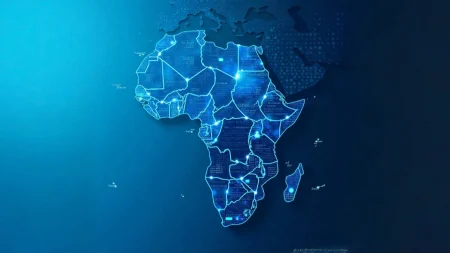- AFRINIC’s ongoing governance crisis threatens the stability of cloud and CDN services across Africa, undermining IP management and infrastructure development.
- Cloud Innovation leads calls for AFRINIC’s dissolution and the appointment of a new RIR, aiming to restore trust and secure Africa’s digital future.
The governance crisis at AFRINIC has reached a critical point, with serious consequences for cloud and Content Delivery Network (CDN) providers across Africa. AFRINIC, responsible for managing Africa’s internet infrastructure and IP resources, is grappling with internal dysfunction and election cancellations. These issues threaten the stability of the region’s digital ecosystem.
AFRINIC’s governance crisis: A direct threat to cloud and CDN providers
AFRINIC’s internal turmoil, including the annulment of its election due to a “unverified proxy dispute,” exposes its growing instability. This decision discarded valid votes and demonstrated unworkable election standards. The crisis has severely eroded trust within the African internet governance community, especially among cloud and CDN providers. These companies depend on AFRINIC’s IP management to ensure stable operations. Without this reliability, their business operations could suffer.
Cloud and CDN providers are integral to Africa’s digital infrastructure. They require seamless IP address allocation and consistent governance to scale their services. AFRINIC’s failure to maintain these processes is jeopardizing the region’s digital development. This instability impacts everything from e-commerce to educational services and governmental functions.
Also read: Could AFRINIC elections be challenged under international arbitration law?
Impact on Africa’s digital future
The continued uncertainty around AFRINIC’s management of IP resources undermines the broader digital infrastructure in Africa. Cloud services and CDN providers rely on stable, fair processes for IP address allocation. Without this, Africa’s internet development will slow, restricting access to faster and more reliable cloud-based services. The collapse of AFRINIC’s governance threatens not only the growth of the digital economy but also Africa’s role in global internet governance.
Additionally, AFRINIC’s failure threatens the principles of bottom-up governance that Africa has long supported. ICANN’s attempts to intervene and expand its reach into Africa’s regional governance further complicate the issue. This external influence could weaken Africa’s autonomy over its internet infrastructure. Cloud and CDN providers must now navigate a politically charged environment where external actors may exert undue influence on their operations.
Also read: The hidden cost of AFRINIC elections: Who pays for governance?
Cloud Innovation’s response: A call for immediate action
Cloud Innovation Ltd., AFRINIC’s third-largest member, has led calls for reform. The company, which holds significant stakes in Africa’s internet ecosystem, has formally demanded the dissolution of AFRINIC and the immediate appointment of a new Regional Internet Registry (RIR). This call for action reflects Cloud Innovation’s deep commitment to securing Africa’s IP resources.
Cloud Innovation’s advocacy for reform is based on the need for a more stable and transparent leadership structure. The company argues that only a new, accountable RIR can restore trust in the region’s internet governance. These actions align with broader calls for improved governance and ensure the continuity of cloud and CDN services across Africa.
Also read: AFRINIC election: Voter fraud uncovered as ECom member threatens to resign
AFRINIC’s ongoing governance crisis is not just an internal issue—it has serious consequences for Africa’s digital ecosystem. Cloud and CDN providers, key to the region’s connectivity, are directly impacted by the instability in IP address management. The urgency for reform is clear. Africa’s digital future depends on resolving the current crisis with transparent and responsible leadership.
At this crossroads, Africa must decide whether it can overcome this governance challenge and build a stable, democratic, and autonomous internet infrastructure for its stakeholders.


